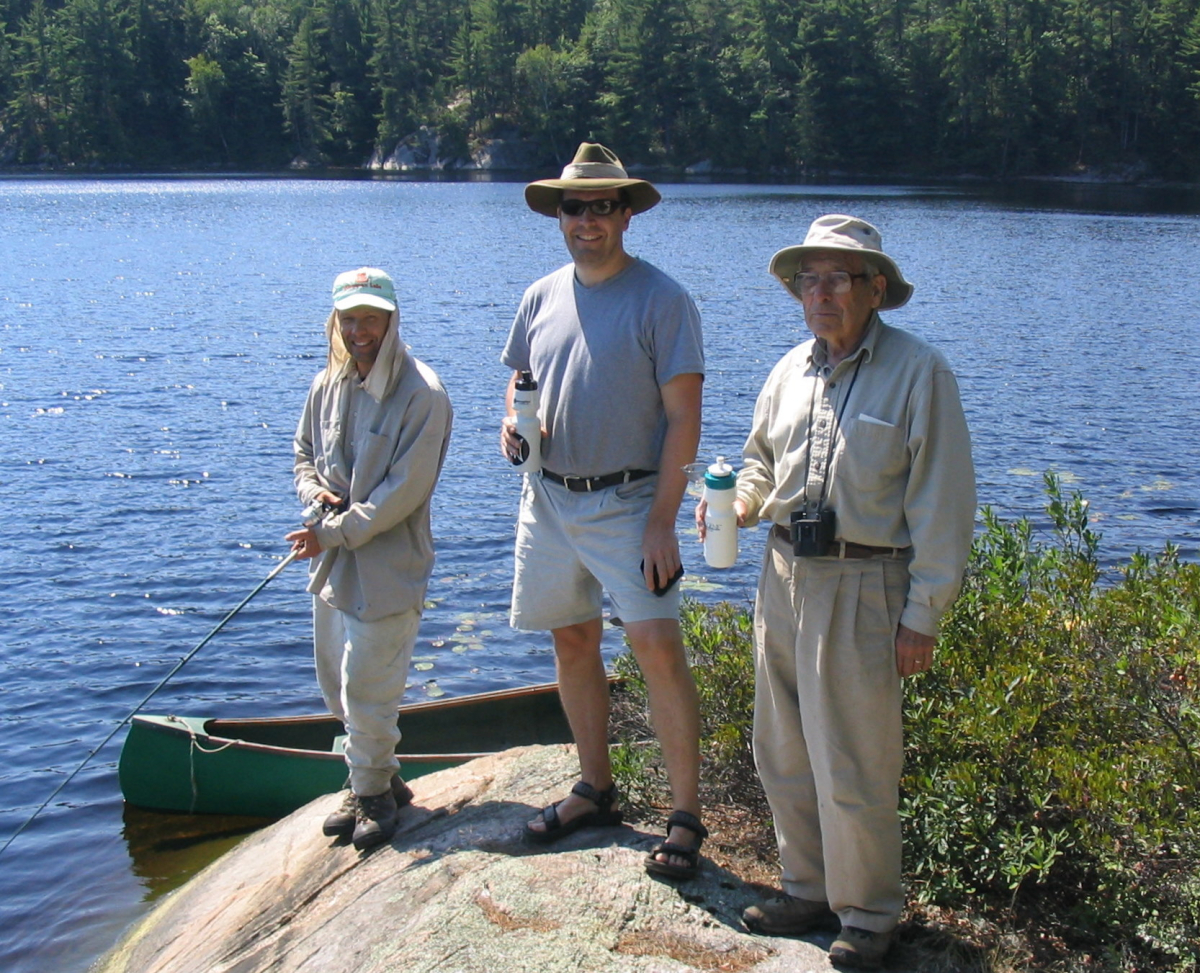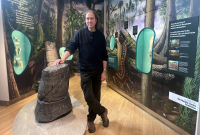Support strong Canadian climate journalism for 2025
On a winter's day when he was 92, Bruce Falls led his family on a three-hour hike around their 180-acre Ontario property to monitor forest bird populations as he had for years. Despite the deep snow, they visited all the sites near Peterborough to ensure they were still approachable.
“My legs were aching, but this was something he wanted to do and remarkably had no problem doing it,” recalled Falls’ son, Stephen.
But those special sites will no longer have visits from J. Bruce Falls. The prominent Canadian conservationist passed away last week at his family home in Toronto at the age of 100.
Falls is remembered by family, friends and the Canadian conservation community as a champion of nature and a leader in conservation and bird studies, which was his main interest. His impact resonates through institutions like Bird Studies Canada, the Nature Conservancy of Canada and the University of Toronto (U of T). He was also a pioneer of bird atlases.
Even at 97, when Falls could only manage flat ground with a walker, he still surveyed loons on a nearby Muskoka lake and insisted on visits for breeding surveys and fishing, said Stephen.
“He thought he could make it up a rocky portage to visit the lake by canoe and wouldn’t take no for an answer.”
However, his dad ran out of steam about halfway up the portage, so Stephen and his brother strapped him into his walker and carried him the rest of the way. Then, they lowered him from a beaver dam into a canoe.
“Getting a 97-year-old out of a canoe onto a beaver dam at the end of the afternoon was a death-defying feat,” said Stephen. “Of course, he wanted to go back the next year, but his 60-plus-year-old children weren’t up to the task. I’m sure he would tell you about the healing power of nature and how much his life was enriched by such experiences.”

Graduating from U of T in 1948 with an honours biology degree, Falls pursued a doctorate in zoology, specializing in small mammal behaviour. Joining the university as a professor in 1954, he conducted extensive field studies in Algonquin Park, publishing over 100 scientific papers.
“He was a pioneer in the study of birdsong and its relation to territorial behaviour, basing his findings on field experiments,” reads a statement from U of T. “He and his students also investigated two colour phases of white-throated sparrows that differ in breeding behaviour and ecology.”
Falls was actively involved in conservation efforts, co-founding the Nature Conservancy of Canada in 1962 and later serving as its chair. He also played key roles in organizations like Bird Studies Canada and the Long Point Bird Observatory. Recognized for his lifelong dedication to nature conservation and groundbreaking research, Falls was awarded the Order of Canada in 2017.
“As a founder of the Nature Conservancy of Canada (NCC) in the early 1960s, Bruce fundamentally reshaped the approach to conservation in Ontario and throughout Canada. NCC is now the nation-leading non-profit private land conservation organization,” said John Riley, the former NCC chief science officer and national director of conservation strategies, who had a long professional relationship with Falls.
“Bruce Falls was the foremost leader in conservation and bird studies in Canada in his generation,” said Riley.
After the Second World War, Falls recognized the urgency of identifying Canada's threatened natural areas, noted Riley. He led Canada's efforts in the International Biological Program, mobilizing volunteers to document key natural areas nationwide.
“Dr. Bruce Falls was a pioneer and true force for nature,” said Catherine Grenier, president and CEO of the Nature Conservancy of Canada, in a statement shared with Canada’s National Observer. “He taught us all to cherish our natural world. Today, we mourn the loss of a generous and thoughtful man who made an immense contribution to conservation across this country. His passion and dedication will be appreciated by generations to come.”
Falls was tremendously concerned about climate change and felt it was an impending crisis that needed more attention, his son noted.
“He touched so many lives and affected so many amazing organizations in his lifetime,” said Stephen. “He would say to pay attention to the natural world, that all citizens should be watchdogs. Whether by being actively involved, or casting votes, we need to balance our economic needs with the needs of the natural world.”
In an interview for the NCC’s 50th anniversary, Falls said: “In many ways, for many people, contact with nature is important. We need it for our own health if nothing else. We needed areas where scientists can study nature to try and unlock some of the information that we need to manage the rest of the environment.”
Certainly, life for the Falls family was focused on outdoor activities, recalled Stephen. Weekends, summer and Christmas holidays were generally in the woods or on a lake.
“We pretty much grew up with a daily dose of nature, and it was medicine that served us well,” said Stephen.
“When my siblings talk, we are often discussing what we have witnessed in the natural world. There is nothing like getting out into nature to keep you mentally and physically healthy. Just look at my 100-year-old dad for proof of the invigorating power of nature.”






Comments
Thank you for this inspiring article about Bruce Falls.